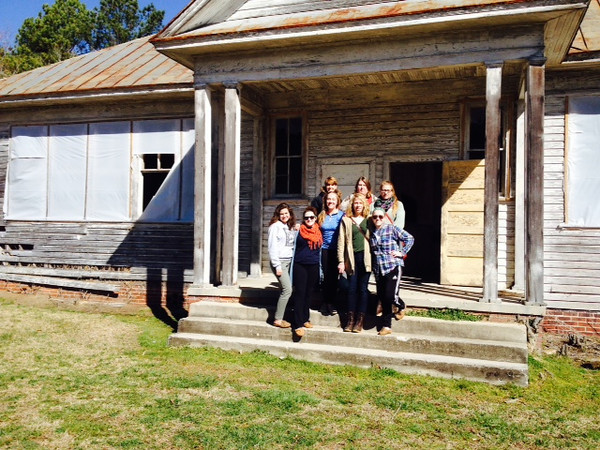“How is this equal?!” I often articulate this simple phrase whenever I take a look at the world these days. Sometimes I mutter the sentence under my breath in disbelief, and sometimes I exclaim it with disgust or utter shock. The question of equality always surfaces whenever I acknowledge the issues we humans face, particularly with simple necessities like food.
Although I personally have had some hard times, I never once worried about where my next meal would come from during my childhood. I grew up under a household where sharing a meal was an important way people expressed their love towards one another. Whether it was supper with my grandmother or covered-dish dinners after Sunday service, good food was how you measured love. After all, it was Jesus himself who cemented this bond of dining and care during the Last Supper and rooted Christian faith and the church in this ideology. The ritual of the Eucharist is the very reminder of love and equality uniting. For years, the church has been known to help those who are hungry with food pantries, weeknight suppers, and soup kitchens. What is a better way to show someone you care than sharing a meal? It’s a basic human intimacy that has been long overlooked by modern society.
I can honestly say that my interest in health and faith started at home. My mother was a victim of poverty during her childhood and good, wholesome food only came her way if someone generously served it in a free meal she received. I was fully aware of the daily fight between good food and income, but didn’t know where to jump into the battle to support those who needed equal food opportunities the most. Between my home life and upbringing, my academic studies in college, and my general interest in community action programs, my passion for whole-food initiatives skyrocketed when I visited the Franklinton Center at Bricks in Whitakers, North Carolina in March 2014.
During my week-long internship with the Franklin Center at Bricks, my small college group was able to learn and experience what the deprivation of good food to low-income families truly meant and how community gardens and fair-priced markets could make a difference. The Franklinton Center had just started a summer program where students could learn to grow fresh produce and take home an equal share of their home-grown veggies. Whether it was eating a healthy lunch with the students at their elementary school or helping till soil, it was amazing to see how the students improved in a mere week. Maybe I’m sappy and think it was cute how each student in my host class wanted to be like Ms. Courtney and have a banana with their lunch each day, but I believe something as small as sharing a healthy meal can make a huge difference.
Now in my twenties, I am grateful for my mother’s dedication to provide me with healthy food options. It is a love I want to continue sharing with the rest of the world. Healthy food is not only needed for physical sustenance, but for spiritual wellness as well. Just like wholesome love, I believe every human should have an equal opportunity to wholesome food.
– Courtney Ward, PHW Volunteer
Courtney Ward is a summer intern with the Alliance of Baptists, working with Pullen Memorial Baptist Church and lending her aid to the Partners in Health and Wholeness Initiative. Born and bred in Frederick, Maryland, Courtney received a Bachelor’s degree in History and a Bachelor’s degree in Religion (both concentrating in American Studies) from Hood College. Looking forward, Courtney anticipates attending seminary in 2015 to earn a Master of Divinity degree and become an ordained minister. If you would like to contact Courtney directly, please send an email to ctward1992@gmail.com.

